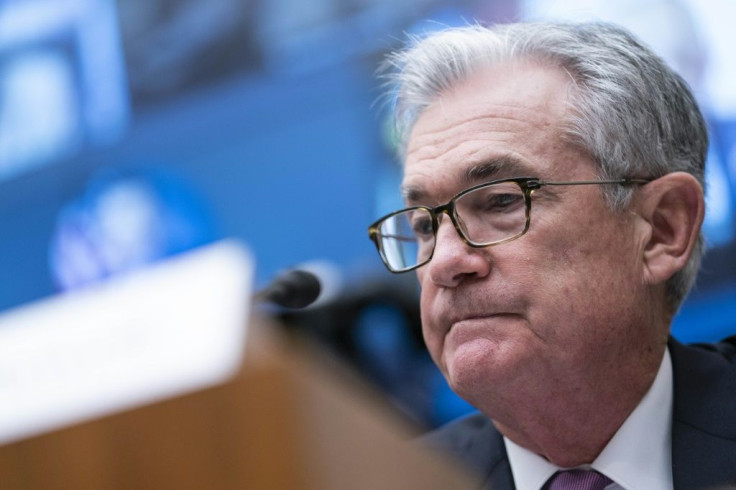US Economy: How Serious Is Inflation And Will It Hurt Growth?
As the COVID-19 pandemic continues to linger, the U.S. is being forced to grapple with an old enemy that is once more rearing its head: inflation. The debate harkens back to the 1970s when the Federal Reserve tightened the money supply.
The current debate about inflation has been centered around a single question: is it temporary or here to stay for the foreseeable future? The answer to this has divided commentators, analysts and policymakers into separate camps regarding what it means for the economy.
In recent measurements of inflation, it is undeniable that prices have climbed in the last year.
The Labor Department's most recent Consumer Price Index (CPI) found that inflation rose by 6.2% in its highest spike in 30 years in October, driven by surging energy prices. Prices for wholesale goods, meanwhile, saw their highest increase in a decade after registering a 0.6% increase last month. The impact of rising prices was reflected in a decline in the gross domestic product in the third quarter as consumption contracted.
The Federal Reserve under Chairman Jerome Powell and the Biden administration have stuck to the view that ongoing inflation is transitory, a phrase that has divided economists. In a press conference on Nov. 3, Powell acknowledged it meant different definitions for different people, but clarified that the Fed did not see it from a time perspective.
“For some, it carries a sense of ‘short-lived,’ and that there's a real-time component, measured in months,” Powell said at the Fed press conference. He went on to explain that the central bank saw it as more a question of whether or not rising prices will lead to “permanently or persistently high inflation.”

Former Treasury Secretary Lawrence Summers took exception to the Fed's position in a column in The Washington Post. He pointed to a speech in August from Powell in Jackson Hole, Wyoming, where he laid out five pillars that supported his view on inflation.
Pointing to recent cross-sectoral inflation and unemployment data, Summers made the point that the supporting arguments for Powell's position on transitory inflation have been rebuked. The former Treasury chief warned that sticking to this view could blind the Fed to possible bubbles forming under its nose.
"Meme stocks, retail option buying, crypto market developments, credit spreads and some start-up valuations suggest significant froth in some markets," wrote Summers, who is now a professor at the Harvard Kennedy School.
The Fed’s view of inflation is not shared by consumers, who perceive it to be at its worst level since the Great Recession a decade ago. This could present its own problems as firms are raising wages to entice workers, who have felt freer to bargain for better compensation or benefits amidst the economic recovery.
This could contribute to what economists call a wage-price spiral where prices rise to match higher wages. Professor Narayana Kocherlakota, a former president of the Federal Reserve Bank of Minneapolis, warned in July that this could become a problem akin to the inflation woes of the 1960s and 1970s if left unchecked.
"If businesses and workers assume an inflation rate of greater than two percent when making wage determinations for the coming fiscal year, it can start to become self-fulfilling," wrote Kocherlakota, who now teaches at the University of Rochester. "This can become a big problem if we see it built into wage-setting practices and price-setting practices."
None of this is to say that the Fed’s viewpoint is not shared by other economists. Jason Furman, former chairman of the White House Council of Economic Advisers under President Barack Obama, said that he expects inflation to remain “uncomfortably high” but that its growth will slow in time.
In an op-ed in the Wall Street Journal, Furman argued that the Fed had the right framework in place to address emerging inflation while leaving room to maneuver. To make the most of this, he urges the Fed to drop any "wishful thinking that inflation is about to downshift dramatically" going forward and accelerate the cautious pace of its recent tapering of the asset purchasing program it launched during the pandemic.
"The central bank should express a more realistic understanding of inflation and firm up monetary policy by tapering its asset purchases more quickly," said Furman, who argued that the Fed should set the expectation that it will raise rates next year instead of by 2023 as Powell suggested.
David Mericle, an economist at Goldman Sachs, also shared the view that inflation will gradually decline. In an Oct. 28 newsletter, Mericle said that higher wages will mean higher costs in low-paying sectors like restaurants as well as in the housing market, but prices for goods should fall as supply problems are resolved.
"As long as supply-demand imbalances are eventually resolved ... we should see some one-time deflationary payback next year for this one-time inflationary surge this year," said Mericle, who cautioned that it remains hard to know for certain how these bottlenecks will be resolved.
New York Times columnist and economist Paul Krugman recently gave a reminder of the inflation scare of 2010-11 and how the country weathered the storm. "...The Fed stayed its course, arguing correctly that rising prices were a temporary blip, not a harbinger of ’70s-style stagflation. Inflation soon subsided, and it has stayed low ever since."
On Nov. 10, the Conference Board downgraded its economic forecast due to a potential resurgence of COVID cases and the Fed's response to inflation and hiring. The research group forecasts that the U.S. economy will grow year-over-year by 3.5% in 2022 and 2.9% in 2023.
"This forecast is a downgrade from our October outlook despite the recent approval of a large bipartisan infrastructure package by Congress. While this package will certainly benefit growth in 2022 and 2023, our forecasts had already assumed it would pass for several months," the Conference Board said.
The Conference Board also noted that "it is important to note that our projections still show robust economic expansion over the next two years."

© Copyright IBTimes 2024. All rights reserved.





















